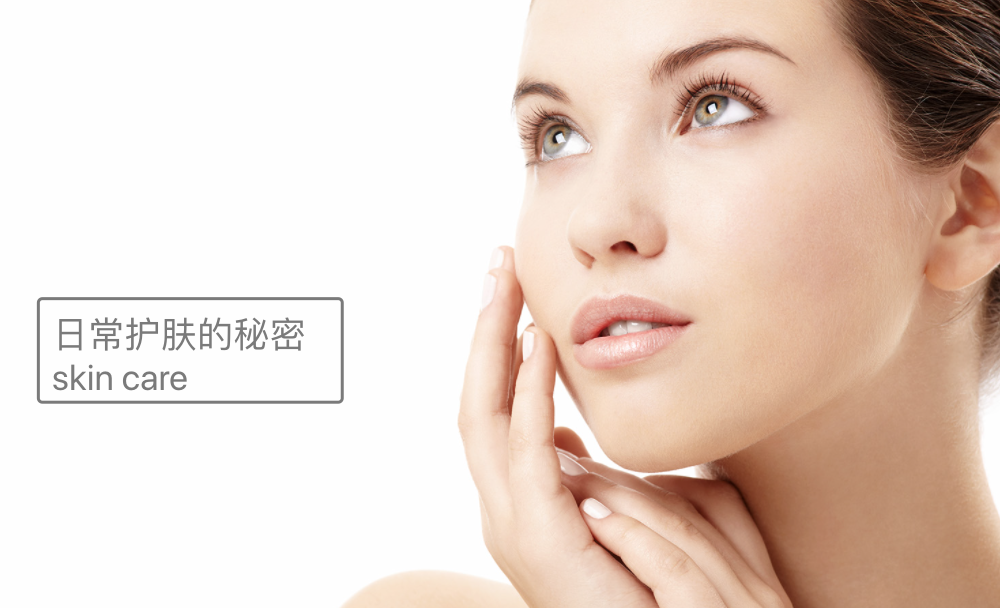良好的皮肤护理——包括防晒和温和清洁——可以让您的皮肤保持健康和容光焕发。

没有时间进行密集护肤?您仍然可以通过掌握基础知识来宠爱自己。良好的皮肤护理和健康的生活方式选择有助于延缓自然衰老并预防各种皮肤问题。
接下来,可以开始试试这些护肤的秘密了 。
1. 保护自己免受阳光照射
照顾皮肤的最重要方法之一是保护皮肤免受过多阳光照射。长期暴露在阳光下会导致皱纹、老年斑和其他皮肤问题,还会增加患皮肤癌的风险。
最全面的防晒:
使用防晒霜。使用 SPF 至少为 15 的广谱防晒霜。大量涂抹防晒霜,并每两小时重新涂抹一次——如果你正在游泳或出汗,则需要更频繁地涂抹。
学会寻找阴凉。避免在上午 10 点到下午 4 点之间晒太阳,此时太阳光线最强。
穿防护服。用紧密编织的长袖衬衫、长裤和宽边帽子遮住你的皮肤。还可以考虑洗衣添加剂,它可以在一定次数的洗涤中为衣服提供额外的紫外线保护层,或者特殊的防晒衣服 - 专门设计用于阻挡紫外线。
2. 不要吸烟
吸烟会使你的皮肤看起来更老,并导致皱纹。
吸烟会使皮肤表皮的微小血管变窄,从而减少血液流动而使皮肤变白。这也会消耗皮肤中对皮肤健康很重要的氧气和营养。
吸烟还会损害胶原蛋白和弹性蛋白——赋予皮肤强度和弹性的纤维。
吸烟时重复的面部表情——例如吸气时抿嘴唇和眯眼—也会导致皱纹。
此外,吸烟会增加患鳞状细胞皮肤癌的风险。如果您吸烟,保护皮肤的最佳方法就是戒烟。向您的医生咨询帮助您戒烟的提示或治疗方法。
3. 温柔呵护您的肌肤
日常清洁和刮毛会对您的皮肤造成伤害。
保持温和:
限制洗澡时间。热水和长时间的淋浴或浴缸可能会过度损坏皮肤上的油脂。限制洗澡或淋浴的时间,使用温水而不是热水。
避免使用强力碱性去污肥皂。强力肥皂和清洁剂可以过度祛除皮肤上的油脂,建议,选择温和的清洁剂。
剃毛/刮毛要谨慎。为了保护和润滑您的皮肤,请在剃毛前涂抹剃须膏、乳液或凝胶。使用干净、锋利的剃须刀进行最贴切护理。顺着毛发生长的方向剃,而不是逆着它。
拭干。洗完澡或沐浴后,用毛巾轻轻拍打或吸干皮肤,可以让皮肤上保留一些水分。
滋润干燥的皮肤。如果您的皮肤干燥,请使用适合您皮肤类型的保湿霜。对于日常使用,请考虑使用含有 SPF 的保湿霜。
4. 吃健康的食物
健康的饮食可以帮助你看起来和感觉最好。多吃水果、蔬菜、全谷物和瘦肉蛋白。
饮食与痤疮之间的关联尚不清楚——但一些研究表明,多吃富含鱼油或鱼油补充剂,少吃或不吃不健康脂肪,加工或精制碳水化合物含量低的饮食,会让皮肤看起来更年轻。
多喝水有助于保持皮肤水分。
5、压力管理
无法控制的压力会使您的皮肤更加敏感,并引发粉刺等其他皮肤问题。为了鼓励健康的皮肤——和健康的心态——要学会采取措施来管理你的压力。
获得充足的睡眠,设定合理的限制,缩减您的待办事项清单,并腾出时间做您喜欢的事情。结果可能比您预期的更引人注目。
Skin care: 5 tips for healthy skin
Good skin care — including sun protection and gentle cleansing — can keep your skin healthy and glowing.
Don't have time for intensive skin care? You can still pamper yourself by acing the basics. Good skin care and healthy lifestyle choices can help delay natural aging and prevent various skin problems. Get started with these five no-nonsense tips.
1. Protect yourself from the sun
One of the most important ways to take care of your skin is to protect it from the sun. A lifetime of sun exposure can cause wrinkles, age spots and other skin problems — as well as increase the risk of skin cancer.
For the most complete sun protection:
Use sunscreen. Use a broad-spectrum sunscreen with an SPF of at least 15. Apply sunscreen generously, and reapply every two hours — or more often if you're swimming or perspiring.
Seek shade. Avoid the sun between 10 a.m. and 4 p.m., when the sun's rays are strongest.
Wear protective clothing. Cover your skin with tightly woven long-sleeved shirts, long pants and wide-brimmed hats. Also consider laundry additives, which give clothing an additional layer of ultraviolet protection for a certain number of washings, or special sun-protective clothing — which is specifically designed to block ultraviolet rays.
2. Don't smoke
Smoking makes your skin look older and contributes to wrinkles. Smoking narrows the tiny blood vessels in the outermost layers of skin, which decreases blood flow and makes skin paler. This also depletes the skin of oxygen and nutrients that are important to skin health.
Smoking also damages collagen and elastin — the fibers that give your skin strength and elasticity. In addition, the repetitive facial expressions you make when smoking — such as pursing your lips when inhaling and squinting your eyes to keep out smoke — can contribute to wrinkles.
In addition, smoking increases your risk of squamous cell skin cancer. If you smoke, the best way to protect your skin is to quit. Ask your doctor for tips or treatments to help you stop smoking.
3. Treat your skin gently
Daily cleansing and shaving can take a toll on your skin. To keep it gentle:
Limit bath time. Hot water and long showers or baths remove oils from your skin. Limit your bath or shower time, and use warm — rather than hot — water.
Avoid strong soaps. Strong soaps and detergents can strip oil from your skin. Instead, choose mild cleansers.
Shave carefully. To protect and lubricate your skin, apply shaving cream, lotion or gel before shaving. For the closest shave, use a clean, sharp razor. Shave in the direction the hair grows, not against it.
Pat dry. After washing or bathing, gently pat or blot your skin dry with a towel so that some moisture remains on your skin.
Moisturize dry skin. If your skin is dry, use a moisturizer that fits your skin type. For daily use, consider a moisturizer that contains SPF.
4. Eat a healthy diet
A healthy diet can help you look and feel your best. Eat plenty of fruits, vegetables, whole grains and lean proteins. The association between diet and acne isn't clear — but some research suggests that a diet rich in fish oil or fish oil supplements and low in unhealthy fats and processed or refined carbohydrates might promote younger looking skin. Drinking plenty of water helps keep your skin hydrated.
5. Manage stress
Uncontrolled stress can make your skin more sensitive and trigger acne breakouts and other skin problems. To encourage healthy skin — and a healthy state of mind — take steps to manage your stress. Get enough sleep, set reasonable limits, scale back your to-do list and make time to do the things you enjoy. The results might be more dramatic than you expect.


